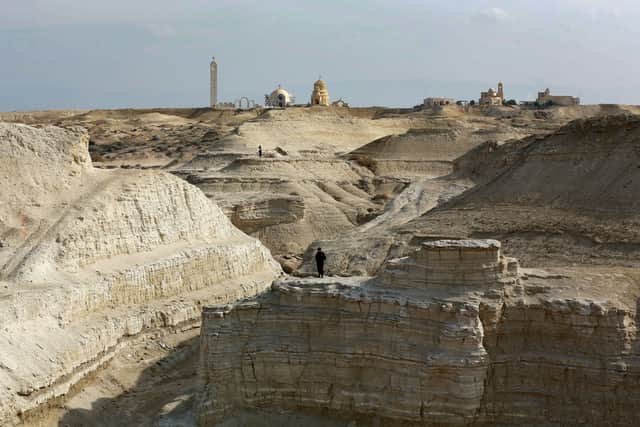How man left Africa 84,000 years ago: Scientists find breakthrough
and live on Freeview channel 276
New research suggests humans migrated from Africa 84,000 years ago to populate the rest of the world via routes through Jordan, not the Red Sea. Scientists from the University of Southampton and Shantou University in China carried out fieldwork in Jordan's rift valley and found hand tools buried in the sediment of now-dried-up rivers.
Through luminescence dating techniques, researchers traced the tools back to around 84,000 years ago. Modern humans evolved in Africa around 200,000 to 300,000 years ago and migrated from the continent in several stages to populate Asia and then Europe.
Advertisement
Hide AdAdvertisement
Hide AdPrevious theories suggested that when sea levels were low they travelled from the horn of Africa to southwestern Arabia via the Red Sea. However, the discovery of the tools confirmed another theory that the humans took a land-only route to the north towards Jordan.
Their journeys followed "well-watered corridors" of river channels that have since dried up and become desert, the study, published in the journal Science Advances, says. Paul Carling, a professor of geomorphology at the University of Southampton, said of the findings: "Our newly published evidence is a key piece of the puzzle that shows humans migrated using a northern route - using small wetland areas as bases whilst hunting abundant wildlife in the drier grasslands.
"Although previous studies have looked for large lakes as potential watering holes, in fact, small wetlands were very important as staging posts during the migration."


Dr Mahmoud Abbas, the study's lead author from Shantou University, added: "The Levant acted as a well-watered corridor for modern humans to disperse out of Africa during the last interglacial, and we have now demonstrated this is the case in the Jordan rift valley zone.
"Rather than dry desert, savannah grasslands would have provided the much-needed resources for humans to survive during their journey out of Africa and into southwest Asia and beyond."
Comment Guidelines
National World encourages reader discussion on our stories. User feedback, insights and back-and-forth exchanges add a rich layer of context to reporting. Please review our Community Guidelines before commenting.
